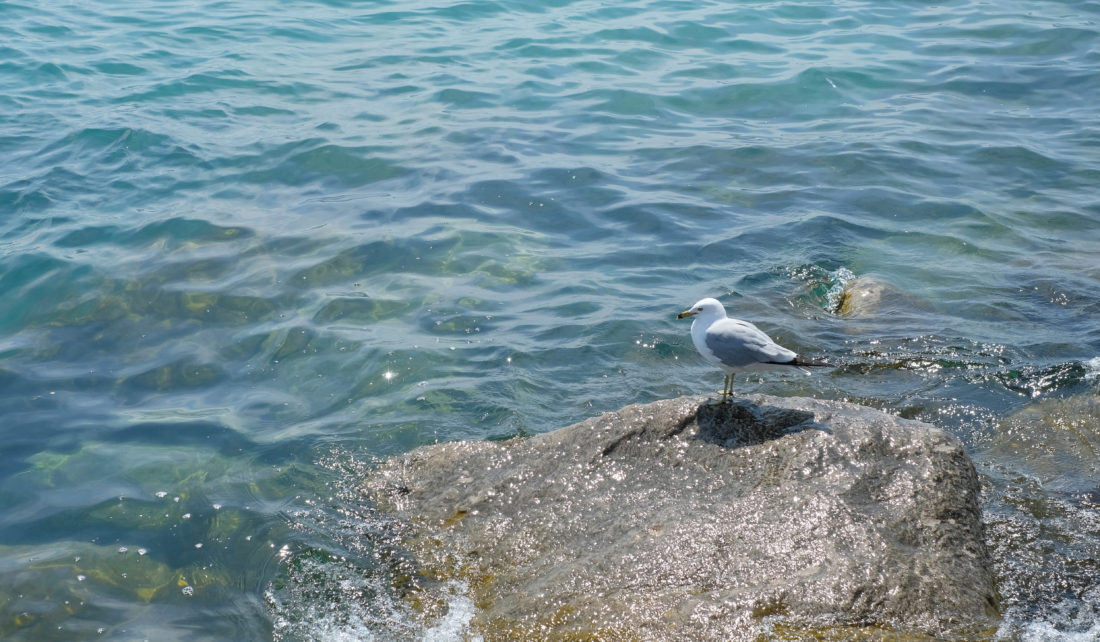
Illinois-Indiana Sea Grant (IISG) announces support for nine new research projects through the Sea Grant Scholars program. The scholars program helps develop a community of scientists to work on critical issues related to Lake Michigan and the Great Lakes region through funding and other opportunities for one year.
This is the third cohort of IISG faculty scholars—they will spend their scholar year working with stakeholders or program specialists to develop preliminary research products and develop at least one proposal to another funding source. This is the first group of graduate student scholars.
As one of the three faculty scholars, Sachit Butail of Northern Illinois University seeks to improve the design of robotic sampling of spiny water flea (Bythotrephes longimanus), an invasive microorganism in the Great Lakes. Ramez Hajj, who is located at the University of Illinois at Urbana-Champaign, will develop a porous asphalt mixture capable of resisting freeze-thaw cycles. And at the Illinois Institute of Technology, David Lampert will develop a stormwater model to assess the effects of water infrastructure as well as land use on hydrology and water quality in southern Lake Michigan communities.
“Since the program’s inception, the breadth of topic areas covered by faculty scholars, plus the innovative ideas that come out of the work, have been quite exciting,” said IISG research coordinator Carolyn Foley.
In addition to faculty members, six graduate students received funding through the scholars competition to extend their research activities, while an additional eight graduate students will join them in professional development activities.
“We are looking to expand the students’ knowledge base, give them a sense of the overall Sea Grant program’s priorities of combining research, communication, and outreach or extension activities, and help them broaden the impact of their work,” added Foley. “However, we hope that they also take away a network of professionals that they can rely on in the next stage of their careers.”
Watch for the graduate student scholars to share their stories over the next year via IISG social media channels (Facebook | Twitter | Instagram | YouTube). IISG’s research database provides a full list of scholar and other research projects supported by the Illinois-Indiana Sea Grant program.
Illinois-Indiana Sea Grant is a part of University of Illinois Extension and Purdue Extension.
Writers: Carolyn Foley, Irene Miles
Contact: Carolyn Foley

